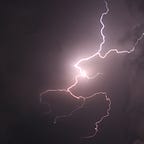Right of woman to perform Yajna
Since the onset of some Dharmasastras(like Vasistha, Gautama etc) we see the inequality between men and women where woman is called inferior than man and hence isn’t allowed to get Upanayana or perform Vedic Yajnas. So in this article I’ll be proving that Woman can perform Yajnas.
First of all women were allowed to get their Upanayana done,
Leading forward (from the house to the sacred fire, the bride) who is wrapped in her robe and wears the sacrificial cord over her left shoulder, he should murmur (the verse), ‘Soma gave her to the Gandharva’(Gob. Gr. 2.1.19)
The Harita Dharma Sutra quoted in Smriti Candrika says,
there are two sorts of women, those that are brahma-vadinīs (i.e. students of sacred lore) and those that are sadyovadhūs (i.e. who straightway marry). Out of these brahma-vadinīs have to go through upanayana, keeping fire, Vedic study and begging in one’s house (i.e. under the parental roof), but in the case of sadyovadhus when their marriage is drawing near, the mere ceremony of upanayana should somehow be performed and then their marriage should be celebrated.
The Samāvartana ceremony i.e. the end of studies as brahmacarin has also been performed by women clearly indicating that they had Upanayana done and were thus initiated into studies. In the ceremony of Samāvartana, Aśvalyana. Grihya Sutra, on the subject of applying ointment says,
After having smeared the two hands with ointment a brāhmaṇa should salve his face first, a kṣatriya his two arms, a vaiśya his belly, a woman her private parts and persons who gain their livelihood by running, their thighs(Aśv. Gr. III.8)
In Mahabharata we have the instance of Kunti receiving mantra of Atharva Veda from a Brahmin,
Vaisampayana continued, “Thus addressed, that faultless maiden could-not, O king, from fear of a curse, refuse tor the second time compliance with the wishes of that best of the twice-born ones. Then, O king, that Brahmana imparted unto that girl of faultless limbs those mantras which are recited in the beginning of the Atharvan Veda(Vana Parva: CCCIII)
Now it is clearly stated by many Dharmasutras that Vedas can’t be chanted without Yajnopavita,
it is a saṃskāra brought about by imparting the śruti to him who seeks learning(Āpastamba Dh. S.1.1.1.19)
Hence further clarifying that even women underwent the Upanayana ceremony.
Now coming to whether women can perform sacrifice or not,
In Jaimini Purva Mimamsa Sutras the 6th chapter 1st patala discusses extensively about the rights of women to perform sacrifice.
First the objector raises these points,
The view of Etīṣāyana is that a man alone is entitled, there being a mention of a special gender.(6.1.6)
By reason of the mention of it (masculine gender) there is a text which lays down sin on (the sex) being not known.(6.1.7)
The author refutes it by this,
On the other hand, the view of Bādarāyana is that it refers to- a class without any distinction; therefore a woman is also included: the object of the class is without distinction(6.1.8)
Being enjoined it should be performed, according to the direction of the Veda(6.1.9)
Later the objector raises the point that women don’t have the right to possess wealth(6.1.12) which later the author refutes(6.1.16) and writes,
On the other hand, the husband and wife possessed of wealth are entitled to perform the one and the same sacrificial act-(6.1.17)
Along with the previous sutra the next one authorizes man and woman’s equal capability to perform sacrifice,
On the other hand by reason of enjoining a quality, the dual shall be made up by the wife.(6.1.22)
Also Rigveda 8.91 written by Apālā Ātreyī(a female sage) tells about an unmarried girl, who undertakes a clandestine soma ritual for Indra.It begins with a maiden going to fetch water finds soma on her way.
She brings it home and addresses first the soma and then Indra. She announces to soma her intention to press it : as it turns out she presses it with her own mouth and offers it to Indra along with all the accoutrements of a real soma sacrifice.
Hence the conclusion is that women too were equally entitled to perform sacrifice.
